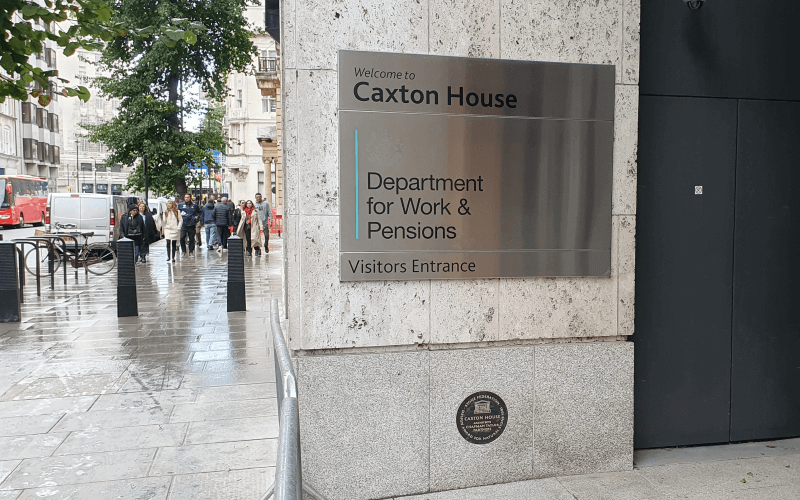Research suppressed by the last government exposed how the “degrading” personal independence payment (PIP) system and its dishonest and unfair assessments left disabled people “broken”, “numb” and “fuming”.
The research, commissioned by the Department for Work and Pensions (DWP), examined the in-depth experiences of 29 disabled people who received zero points after being assessed for their PIP eligibility.
The report, by the research agency Basis Social, which was probably delivered to DWP about a year ago, is one of 31 research papers received by DWP over the last six years but not published by previous Conservative-led governments (see separate story).
The PIP report found that the most common reaction from the disabled people interviewed to beginning an application for the extra-costs disability benefit was one of feeling “overwhelmed”.
One of those interviewed, who had ME, and spent all but half an hour every day in bed, took three months to fill out his PIP claim form, but he said that when he tried to explain more about his case to the assessor, he was “cut off”.
Like all the interviewees, he was given zero points and so was found ineligible for any support with his disability-related costs.
Another of those interviewed was given no advance notice of her assessment and had to complete it outside the fast-food restaurant where she worked.
She had experienced historic trauma, but the assessor only asked her about her anxiety.
On learning she had received zero points, despite opening up about her traumatic past and the impact it had had on her mental health, she told researchers that she felt “numb” and that none of the information on her PIP form had been taken into account.
A disabled man with multiple sclerosis, who again received zero points, told researchers: “I felt personally that by me being completely open and honest about bad and good days I really thought that I would get a fair assessment out of it.
“They [the assessor] gave me the perception that they understood that, and it would be taken into consideration; but clearly it wasn’t.”
A woman with PTSD told the researchers: “The whole process is degrading. It feels like people are judging you and that the system is set up to refuse people.”
Another disabled person awarded zero points told the researchers that he would not appeal the zero points decision because he had been left feeling “broken”.
An autistic woman said the zero points had left her “fuming”.
She said: “I went down there, gave an interview and in confidence told her that I struggle with basic things and then for her to say I don’t need any support was kind of like a slap in the face.”
Another interviewee said he had struggled to communicate how being autistic, with depression and anxiety, impacted his day-to-day life, because the assessor had been “unsympathetic and intimidating”.
He said he had been “furious” when the decision letter arrived.
He believed the assessment report contradicted the medical evidence he had submitted.
The researchers concluded: “When reflecting on what they wished they had done differently, participants wished that they had sought support, provided (more) evidence, made their case fully, and were more directive in their assessment.
“They also wished for the ability to choose the channel of their assessment (eg phone, video or face-to-face), and to speak with someone throughout the process.”
Asked why Conservative ministers stopped releasing many DWP research papers from 2018 onwards – under work and pensions secretaries Esther McVey, Amber Rudd, Therese Coffey, Chloe Smith and Mel Stride – the party had failed to comment by noon today (Thursday) and refused to even acknowledge emails from Disability News Service requesting a comment.
Liz Kendall, announcing the publication of the PIP paper and 30 others on Monday, told MPs they had been “sat on by the previous government”.
Asked by Disability News Service to explain why it failed to publish the 31 papers under the last government, a DWP spokesperson refused to comment.
A note from the editor:
Please consider making a voluntary financial contribution to support the work of DNS and allow it to continue producing independent, carefully-researched news stories that focus on the lives and rights of disabled people and their user-led organisations.
Please do not contribute if you cannot afford to do so, and please note that DNS is not a charity. It is run and owned by disabled journalist John Pring and has been from its launch in April 2009.
Thank you for anything you can do to support the work of DNS…

 ‘Disastrous’ cuts bill that leaves legacy of distrust and distress ‘must be dropped’
‘Disastrous’ cuts bill that leaves legacy of distrust and distress ‘must be dropped’ Four disabled Labour MPs stand up to government over cuts to disability benefits
Four disabled Labour MPs stand up to government over cuts to disability benefits Silence from MP sister of Rachel Reeves over suicide linked to PIP flaws, just as government was seeking cuts
Silence from MP sister of Rachel Reeves over suicide linked to PIP flaws, just as government was seeking cuts